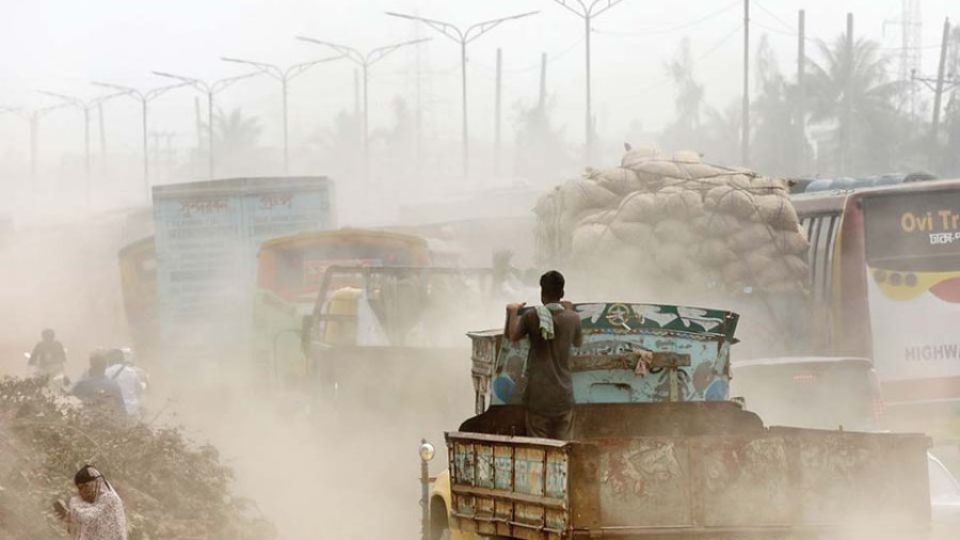January 3, 2025
DHAKA – It is alarming to learn that this December marked the most polluted month in Dhaka in the past nine years. According to the Center for Atmospheric Pollution Studies (CAPS), over these nine years, the months of December have seen 17 days of “hazardous” air, with 11 of those days being in last December. Research by CAPS found that the average Air Quality Index (AQI) last month was 288—the worst since 2016. On December 14, the pollution level reached an unprecedented 880 AQI at 11 PM.
Thus, Dhaka has suffered from consistently poor air quality over the years. While the air quality slightly improves during the monsoon season, it deteriorates to “unhealthy” and “very unhealthy” levels during winter. But 11 days of “hazardous” air in a single month indicates a tipping point that demands decisive action.
The failure of the previous government has undoubtedly contributed to the current situation. Many projects were undertaken over the past decade to improve air quality, but these failed to deliver results, with allegations of funds being misappropriated by the relevant authorities. But has anything changed since the political transition in August? Reportedly, no significant initiatives have been undertaken to address major pollution sources such as brick kilns, factory emissions, unfit vehicles, indiscriminate waste burning, and unchecked construction activities. We do not need additional projects to curb these illegal activities—what we need is active, consistent monitoring which is sorely lacking at present. The environment ministry must be held accountable for this failure.
It is known that political influence hindered efforts when Awami League was in power, but how to explain the lack of progress since the interim government took charge? After assuming the role of environment adviser, Syeda Rizwana Hasan announced a National Air Quality Management Action Plan to address pollution sources, improve air monitoring, and strengthen enforcement mechanisms. Months have passed, yet there has been no tangible progress. As a result, Dhaka’s hospitals are now overwhelmed with patients suffering from pollution-related diseases.
We do not expect a dramatic change under the interim government, but Dhaka’s residents at least deserve to see some measurable progress in curbing its air pollution. The authorities must not fail them again.


